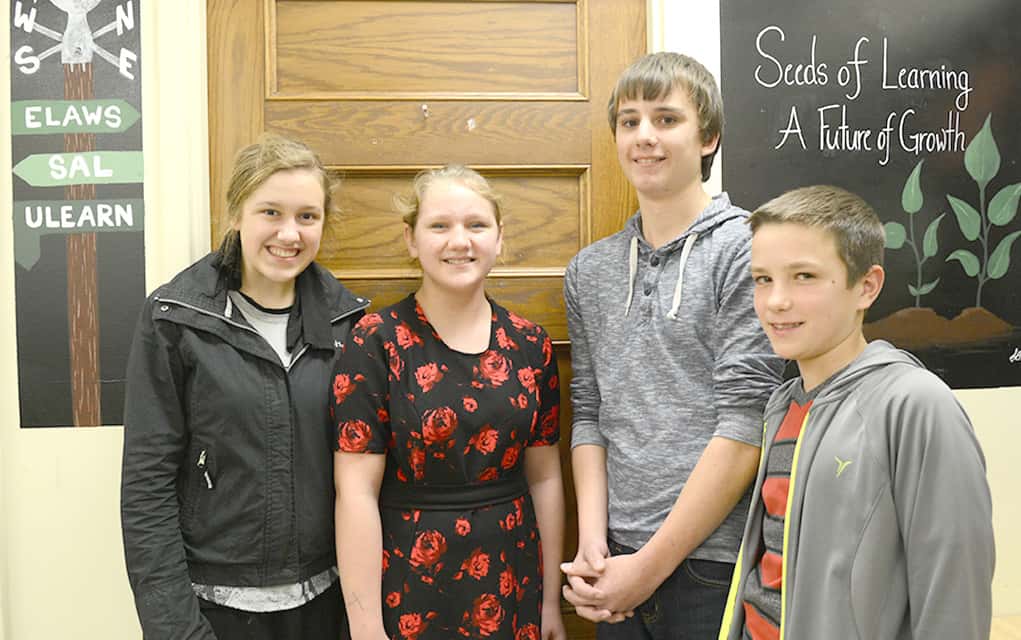The story of Canada as a country has often been one of mutual cooperation and respect between its diverse parts. From old divisions between English, French and Indigenous populations dating back to before Confederation to modern day immigration changing the makeup of the land, Canada has often been forced to at least try to accommodate the needs of a vast country stretching from Atlantic to Pacific to Arctic coasts.
Stories of success and failure abound in Canada, and even locally examples of both varieties can be found, particularly in the township’s cohabitation with its conservative Mennonite communities. Representing an example of the former is the story of the Elmira Work and Life Skills (ELAWS) program, an alternative education program run out of the Elmira District Secondary School.
“ELAWS was most likely … the first and the only program of its type in the world,” suggested Janice Harper, a former teacher at EDSS who taught in ELAWS and studied the program’s history as part of her master’s thesis.
Launched first in 1996 with some five students, and then again in the early 2000s, the local ELAWS program was created as a collaboration between the public school board and Mennonite church groups. The program was designed to cater to the distinct religious and social requirements of the conservative communities, while still following provincial requirements to qualify for a diploma program.
The resulting success and growth of the program has enabled hundreds of local residents of the townships to obtain secondary school diplomas, where they would otherwise have been without, and inspired the creation of similar programs across the province.
“There’s two main reasons that it’s unique. The first is that it combines a variety of Mennonite groups,” explained Harper. Unlike many high school programs created for or by conservative groups, the ELAWS program does not exclusively serve any particular religious denomination, and instead combines multiple faiths, including non-Mennonites, into a single classroom.
The program is also unique in being specifically a public school system, as opposed to a private or parochial institution.
“ELAWS was the very first program to actually introduce public schooling and secondary schooling to the conservative Mennonite community,” she said. “In education history, that’s huge.”
Historically, conservative Mennonite groups often eschewed a high school education, favouring instead a hands-on education, such as could be gained working on the family farm or traditional practice. Usually, that meant having to drop out of school by age of 14, when the five-day school weeks became untenable for parents hoping to train their youth directly in the family trade.
The secular system also failed to accommodate other elements unique to the conservative culture. Families wanted their children separate from the social life of the mainstream student body, including in organized sports and other school activities. Conservative Mennonites were also opposed to sexual education, wanted limited access to technology for their children, and were against requirements to change for physical activity classes.
The result of these differences was that children fell out of the public education system at a young age, with little opportunity for an alternative. But that hadn’t always been the case though, notes Harper.
“What most people don’t realize is even all of the Old Order Mennonites went to public school,” she explained. “So they all went to the small rural public schools, because they were on every corner. You still see them everywhere.”
These elementary schools were typically no larger than one or two-classroom buildings with little in the way of gyms, libraries or other facilities, though they served the Mennonite communities adequately.
A split emerged in the 1960s, however, when the Ministry of Education moved to amalgamate schools across the province. The smaller, rural institutions were forcibly closed down, and students were expected to bus to larger centralized locations – more in line with today’s thinking.
The move was part of a broader effort in the province to raise the quality of education in rural Ontario, where the sparsely equipped schools were seen as lacking next to those available in the province’s urban centres.
Mennonites staunchly opposed the changes and withdrew their children from the public system en mass, and the province agreed to let them. A compromise was made by the then-minister of education in Ontario, and future premier, William Davis. Under what became known as the Three Bridges Agreement, families were allowed to remove their children from formal schooling at 14 provided they were needed at home to work on the family farm.
As time went on, however, and the demands for a formal education grew in the workplace, more conservative Mennonite families saw the benefit of a high school diploma.
Recognizing the need, a first attempt at creating a Mennonite-specific program at EDSS was made in 1996 with just five students attending. It was a start, though the program was a far cry from what its successor ELAWS would become.
The program gave high school-aged children an education, in an actual high school no less. But functionally, the education resembled more of a basic English-speaking instructions than an alternative secondary school education.
“[The students] came when they wanted, there was no expectation that they would ever graduate. It was really English learning is what it was. It was ESL (English as a second language) learning.”
A second attempt was made in 2000, this time by a recently retired EDSS teacher. Wayne Ziegel served as head of the school’s co-op program, and after his retirement was requested by the school’s then-principal to help create a program that would serve the Mennonite communities in the township.
Ziegel accepted the task and began to reach out to communities across the region – communities that had been largely left incommunicado by the public education system for half a century. The culmination of those efforts resulted in an unprecedented meeting being held in 2004 at the Countryside Christian School in Hawkesville between Mennonites and public school officials.
“This was really unheard of,” said Harper. “Because since the 1960s, they had disengaged from public schooling. And then, there was never a history of secondary schooling. So when they met, when 100 people showed up at that meeting – all different groups of Mennonites – all met with public secondary school people, this was unprecedented. And then they agreed to come together, to work together.”
The creation of ELAWS proved to be a game changer: it was a segregated system designed by educators and Mennonites alike that upturned some of the rigid demands of public schooling. Gone were the strict requirements of the mandatory five-day school weeks in favour of a more flexible, co-op style system. So too were the requirement for changing in for gym classes and sexual education stricken.
Moreover, classes were designed to match the educational needs of conservative groups specifically, offering more classes in practical, as opposed to strictly academic, subjects. Mennonite groups could also direct the subject materials being taught as well in the classroom, ensuring they could send their children to class with peace of mind.
The program has endured for 20 years now, and with an average student body of 100 students a year has meant that that hundreds, if not thousands, of children living in the region have been able to earn their diplomas and, consequently, better opportunities and prospects over the rest of their lives.
“Through hard work, listening and compromising by the school system and different groups of conservative Mennonite parents, the ELAWS program was able to accommodate and integrate previously disengaged communities within a public education setting,” said Harper.
The ELAWS program will be hosting an informational session at the Lions Hall (40 South St. W., Elmira) on January 15 for anyone interested in learning more about the program or enrolling. The session starts at 7:30 p.m., and families are encouraged to come by to have their questions answered.
Questions about the information night or the program can also be directed to ELAWS program coordinator Jeff Martin at 519-669-5414, ext. 5480, or at jeff_martin@wrdsb.ca.









